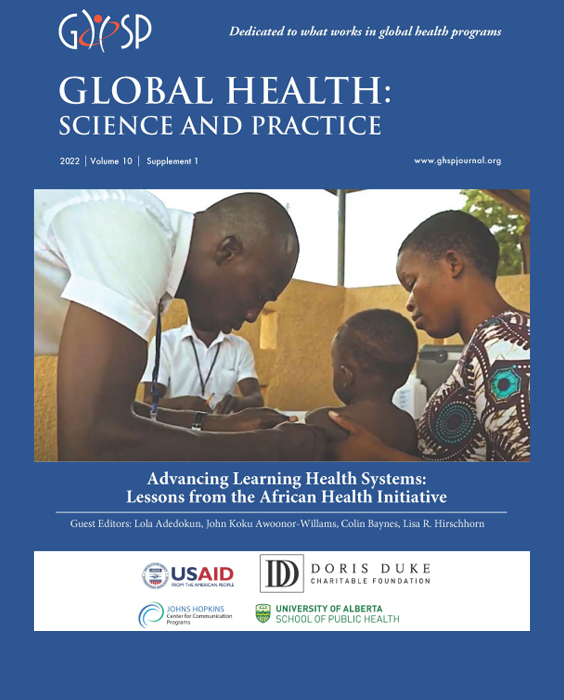The African Health Initiative (AHI) seeks to catalyze significant advances in strengthening health systems by supporting partnerships that will design, implement and evaluate large-scale models of care that link implementation research and workforce training directly to the delivery of integrated primary healthcare in sub-Saharan Africa. This page summarizes one of five Population Health Implementation and Training (PHIT) Partnership projects that were supported through the AHI.
Better Health Outcomes Through Mentorship and Assessment (BHOMA)
Grantee Institution:
The University of North Carolina at Chapel Hill
Team Leaders:
- Jeffrey S.A. Stringer, M.D.
Centre for Infectious Disease Research in Zambia
- Roma Chilengi, MBChB, DTM&H, MSc
Centre for Infectious Disease Research in Zambia
Project Summary:
The Zambia PHIT partnership, comprised of the Center for Infectious Disease Research in Zambia (CIDRZ), the University of North Carolina at Chapel Hill and the Zambia Ministry of Health, focused on a health research intervention in three rural districts in the nation's Lusaka Province: Chongwe, Kafue and Luangwa (population over 300,000). The foundation of the Zambia partnership's approach began with a simple fact: Good health outcomes are largely the result of good clinical care. A successful HIV/AIDS program orchestrated by CIDRZ has already transformed Zambia's expectations for improving the quality of clinical care through clinical mentoring, data collection and monitoring. The model used by CIDRZ, when applied to the delivery of integrated primary care, sought to reverse the patterns of the past 20 years in the three intervention districts and produce measurable improvements in Millennium Development Goal health indicators. The seven-year project had both a clinic-based and community-based implementation strategy.
The clinic intervention was composed of five key components: 1) Introduction of practical tools, protocols and forms by the PHIT project to establish clear clinical care standards; 2) Intensive clinic implementation that clearly communicated required clinical standards; 3) Supportive mentoring of clinicians that reinforced standards and changed practice through District Quality Improvement Teams; 4) Provision of essential resources and tools to enable standards to be met; and 5) A data feedback system that provided feedback on whether standards were met by health care providers. The community intervention consisted of patient follow-up and household assessments by community health workers using automated mobile phone technology that was linked directly to patient information transcribed by clinicians and entered by data technicians into a data capture system. Through this automated system, health workers were able to follow up with the sickest and most at-risk patents in the community in order to intervene where possible and document outcomes. Clinic and community health workers had clear protocols and received ongoing mentoring, measuring and performance reviews by supervisors.
The intervention was evaluated through a series of community, household and facility surveys. The Zambia PHIT Partnership's primary focus for these surveys was determining age-standardized mortality in persons less than 60 years old.
For more information, please visit the CIDRZ website.
To view publications about this project, please visit the Phase 1: Zambia PHIT Partnership Publications page.
Read about the other four Phase 1 PHIT Partnership projects by visiting the links below:






